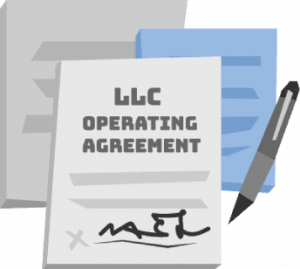How To Start An LLC In Montana
Starting an LLC in Montana is a good call if you’re looking to access liability protection, numerous tax options, and a flexible management structure. As a bonus, Montana recently slashed its LLC formation fees in half, from $70 to $35, making starting a business even more affordable. You must complete all filings online, as there’s no option to file in-person or by mail in Montana.
To get your LLC started, you must fill out paperwork called Articles of Organization with the Montana Secretary of State. You can handle it yourself or hire someone like Northwest to do it for you. Once you’ve submitted the paperwork to Montana, you will have to take additional measures to ensure your privacy and comply with federal requirements. Here’s what you need to do.

1. Name Your Montana LLC
Your LLC journey begins with a name. There are specific Montana laws you must follow, though. The state’s rules are outlined in MT Code § 35-8-103. In short, your LLC’s name must:
-
Include the words limited liability company or an abbreviation like LLC.
-
Contain no language that makes it sound like a different business entity, such as corporation or limited partnership.
-
Be unique. It cannot already be taken by another Montana business. If you already have a name in mind, make sure it’s available.
Tip: Your name could be available in Montana but also trademarked federally. While you could still use the name for a Montana business, there’s a chance you’d get sued later and have to defend yourself in court. Performing a trademark clearance search can give you more peace of mind.

2. Get A Domain Name
An online presence is a core part of a business’s branding strategy. So, once you’ve ensured that your preferred business name is available in Montana, you should see if a matching or complimentary domain name is available.
If you haven’t thought about building a website yet, don’t worry. Securing a domain name is a cost-effective way to set a foundation for a website in the future. There are some great reasons to consider registering a domain name early in your business journey:
- Registering your domain name alongside your business name ensures consistency in your branding in the future
- As your business grows, you can invest more resources into growing your online presence with the groundwork of securing a domain name out of the way
- Even without a website built, you can use a domain name to establish a branded business email account with a professional look that ends in your company name (such as info@yourcompany.com)
The best part? Having Northwest form your business will net you a domain name of your choice, registered for a year at no cost to you. And if you want more? You can test drive all of our web services, including email, web hosting, and a prebuilt website with free SSL security for 90 days with no upfront cost.

3. File Your Montana Articles of Organization
The Montana Articles of Organization are the form that must be submitted to the Montana Secretary of State to officially form your LLC.
Tip: All of the information on this form becomes part of the public record. If you want to keep more of your personal information private, you can hire a professional registered agent to file the forms for you. This allows you to keep information like your personal address off the public record.
You’ll need to list the following information on your Montana Articles of Organization:
Must include an indicator like limited liability company, limited company, or an abbreviation like LLC. The name must also be available.
Most people will check the box marked, at will because they plan to operate in perpetuity, aka with no fixed end date. But if you have a set end date in mind for your LLC, check term and list the latest possible date that the LLC will dissolve.
Three options:
- Use Your Own Address This is easy but if you work from home it compromises privacy and security.
- Use a P.O. Box Safe and secure, but you can’t use a P.O. Box in places where a physical street address is required.
- Use an Address Service Our professional business address service is affordable and boasts a physical street address in Kalispel you can use as your primary business address and for all your business purposes. $20/ month gets you a suite number in our commercial building in Kalispel plus unlimited mail forwarding. It’s the best deal in the industry.
A registered agent accepts your legal mail, including official state communications and service of process (or notice that you’re being sued). Appointing a registered agent for your business is required under Montana law.
At minimum, your Montana registered agent must:
- Maintain a physical address in Montana.
- Be available at that address during regular business hours.
- Accept legal correspondence on your business’s behalf and forward it to you right away.
For this field, you must indicate if you’ve selected a commercial registered agent, which is a business like Northwest, or a non-commercial registered agent, which is an individual like yourself or your cousin Barry.
Tip: If you meet the legal requirements, you can act as your own registered agent in Montana. If you don’t spend all day at the same place or would rather live privately with your LLC, feel free to hire a professional like Northwest to act as your Montana registered agent.
This section is only required if you’re using a non-commercial registered agent. You must list a street address, not a P.O. Box.
Only include this if it’s different from the above street address.
Indicate if members or managers will run your LLC.
In a member-managed LLC, the owners run the business.
In a manager-managed LLC, a hired manager or managers are in charge.
Tip: You can appoint an owner (member) to be a manager; in this case, you’d name them a managing-member of the LLC, and your LLC is manager-managed. This scenario is only possible in a multi-member LLC where not all members are managers, so don’t worry if it doesn’t apply to you
List the names and mailing addresses of your members (if member-managed) or managers (if manager-managed).
Typically, only members of a Professional Limited Liability Company (PLLC) have personal liability for business debts. But if that applies to any members of your business, you must attach a liability statement here. Tip: most people skip this part.
Only list this if you’re forming a PLLC. PLLCs are subject to increased oversight because they offer specific licensed services to the public. Doctors, dentists, and psychiatrists are some of the people who might form PLLCs.
List whoever is preparing the document. It can be a registered agent, but it doesn’t have to be.
List how the state should contact your organizer if there’s an issue with your LLC’s Articles of Organization.
How Do You file Montana Articles of Organization?
When we say file, we just mean submitting your LLC paperwork to the Montana Secretary of State. The only way to do that is by filing forms on the Secretary of State’s website, which requires you to create an account first. It costs $35 to file. If you want your documents processed within 24 hours, you can pay an extra $20. For processing within one hour, you’ll need to pay an extra $100.

4. Adopt an Operating Agreement
An operating agreement is an internal document for your LLC that covers how the LLC operates. It explains how the LLC will do things like resolve disputes, allocate profits, and vote.
Since an operating agreement is an internal document, it means you don’t have to file a copy with the state. Legally speaking, the State of Montana does not require you to create an operating agreement at all. But if you don’t, your LLC will be subject to Montana’s default LLC laws, which gives you less control over your company.
Tip: Writing an operating agreement isn’t something you can do in just a few minutes. So we had our attorneys draft an operating agreement for Montana, and you can customize it for free.

5. Get an EIN
Your LLC probably needs an EIN, or Employer Identification Number. An EIN is a nine-digit number assigned by the IRS to your business. An EIN is necessary to pay taxes, as well as to do things like apply for loans and open bank accounts. Listing your EIN on forms is also more secure than listing your personal social security number.
You can apply for an EIN via the IRS website. If you don’t want to go to the trouble of doing that, you can hire us to obtain an EIN for you.

6. Get a Business Bank Account
You’ll want to keep a barrier between your personal finances and business finances. If you fail to do so, a court could find that you aren’t legally separate from your LLC. To avoid such a scenario, you must open a business bank account. When you head to the bank to open your account, you’ll want to bring your operating agreement, EIN, and an LLC Resolution to Start a Bank Account.

7. File Reports & Taxes
All LLCs operating in Montana must file an annual report. But if you file one in 2025, you won’t have to pay a penny, because the state is waiving the annual fee report for 2025 after first waiving the fee in 2024. Don’t get complacent because the report is free to file, however. If you fail to file your annual report by April 15, you can be hit with a $15 penalty, and your business might lose its good standing with the State of Montana.
There is no statewide sales and use tax in Montana. There are also no local sales and use taxes to worry about.
Let’s Set Up Your Montana LLC!









